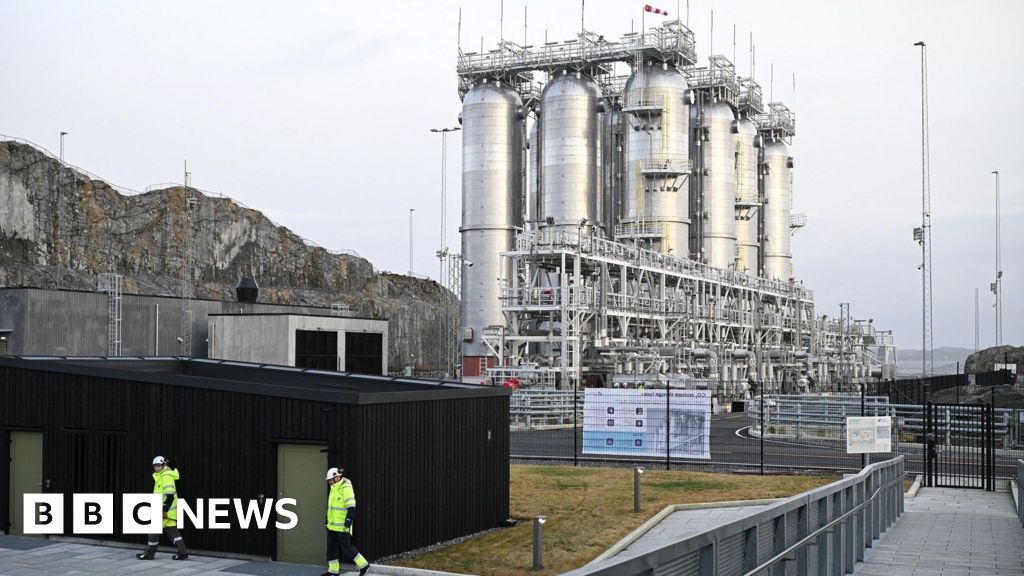The government is committing billions of pounds to an “unproven” green technology for reducing planet-warming gases without considering the impact on consumers’ bills, MPs have warned.
Carbon Capture, Utilisation and Storage (CCUS) facilities prevent carbon dioxide, produced by industry, being released into the atmosphere by capturing and storing it underground.
In October, the government pledged nearly £22bn for CCUS facilities and three quarters of the money will be raised from consumer bills.
But on Friday, the House of Commons’ Public Accounts Committee raised serious concerns that the government had not properly assessed the financial impact on households and businesses.
“It is an unproven technology, certainly in this country. And we are concerned this policy is going to have a very significant effect on consumers’ and industry’s electricity bills,” said Sir Geoffrey Clifton-Brown, chair of the Public Accounts Committee, a cross-party group of MPs which scrutinises public spending.
Speaking to the BBC Today programme on Friday, Ed Miliband, Secretary of State for Energy, acknowledged the technology was novel but said it was vital for tackling climate change.
”CCS is an innovative technology in terms of being used at scale, but all the expert advice – UK Climate Change Committee and others – say if we don’t do this we are never going to cut global emissions,” he said.
He added he was “100% committed” to the government’s climate goals.
The UK has a target to reach “net zero” – meaning no longer adding to the total amount of greenhouse gases in the atmosphere, by 2050. As the country switches to renewable energy and away from fossil fuels for heating homes and running cars, greenhouse gas emissions like carbon dioxide, also known as CO2, will fall.
But a small amount of gas will still need to be used to maintain electricity supply and there are some industries such as cement where there are few green alternatives. Carbon capture could prevent the CO2 produced by these processes from entering the atmosphere – and the government has bet achieving its climate goals on it.
Both the UK’s independent climate watchdog and the UN’s climate science body, the IPCC, agree that CCUS will be needed if countries want to reach net zero and avoid the worst impacts of climate change.
By 2050, the government wants carbon capture and storage to prevent the emitting of 50 million tonnes of CO2 – more than 10% of what the country currently releases – and has committed £21.7bn to achieving this goal.
The funding, announced in October, will go towards clusters of carbon capture projects in Merseyside and Teesside, which it said would create thousands of jobs and attract private investment.
Dr Stuart Jenkins, research fellow at the University of Oxford, pushed back on the committee’s assessment of the technology.
“I really don’t like the phrase “unproven” technology, it is not representative of the status of the technology as an engineering problem,” he said.
Although there are no commercial CCUS sites in the UK, there are 45 commercial facilities already operating globally capturing around 50 million tonnes of CO2, and there are more than 700 being proposed or developed, according to the International Energy Agency.
But Dr Jenkins did agree with the Public Accounts Committee that there were questions about whether the government’s current funding model was sustainable.
The committee have recommended that the full financial impact of the programme on consumers be properly assessed, taking account of cost-of-living pressures.
The committee did recognise the importance of early government support for novel technologies like CCUS to give confidence to the industry.
But it added it “was surprised” to discover that the government had signed two contracts with CCUS developers last year and not guaranteed that if the projects were successful that the government – and the public – would receive profits or benefits such as lower energy bills.
“If you were a venture capitalist investing this sort of sum of money, which is effectively what the taxpayers are doing here, you would expect to have a big equity stake in this whole thing,” said Sir Clifton-Brown.
His committee recommended that any future contracts be changed to include profit-sharing mechanisms.
The government said that it expected the £21.7bn funding for CCUS to unlock £8bn in private sector investment over the next 25 years.
Mirte Boot, co-founder of Carbon Balance Initiative and research associate at University of Oxford, said her team’s research suggests a better long-term model for financing could be introducing a carbon storage mandate – placing a legal obligation on fossil fuel producers to store a share of the CO2 they produce, or face a financial penalty.
“We argue that carbon storage mandates on fossil fuel producers are fair whilst also providing the kind of investment certainty that companies need,” she said.


